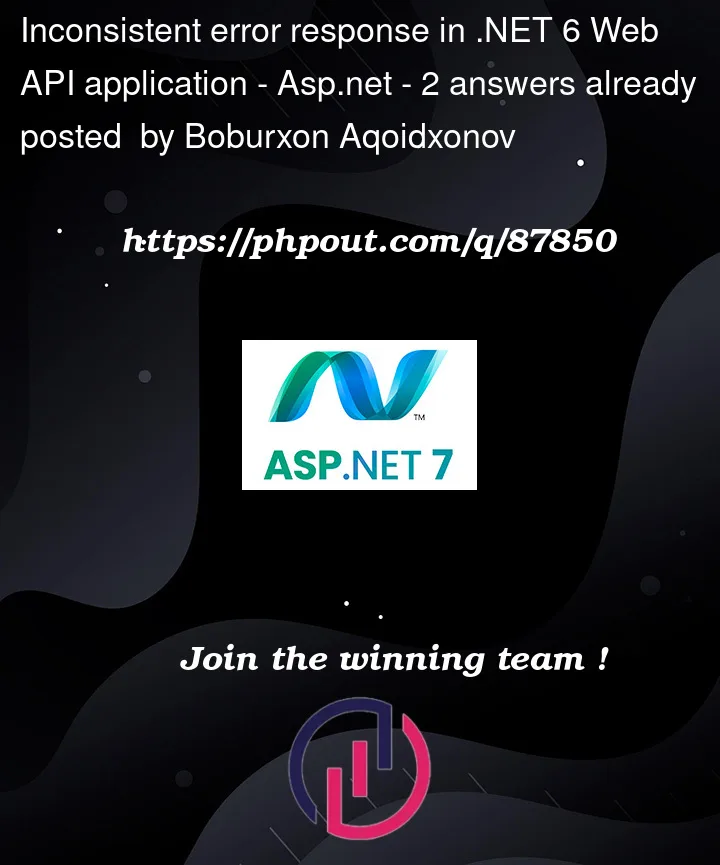I am not able to find how to throw exceptions as they are generated by .NET 6 Web API.
If I return BadRequest(ModelState) with added errors I am not getting same message with status, type, title etc.
By default .NET generates this kind of errors when validation error occurs:
{
"type": "https://tools.ietf.org/html/rfc7231#section-6.5.1",
"title": "One or more validation errors occurred.",
"status": 400,
"traceId": "00-488f8c0057223cbba92fc1fbfc8865d8-2341d7aba29d098f-00",
"errors": {
"$": [
"The JSON object contains a trailing comma at the end which is not supported in this mode. Change the reader options. Path: $ | LineNumber: 7 | BytePositionInLine: 0."
],
"model": [
"The model field is required."
]
}
}
I want to configure my application to respond with the same error JSON, or I want to configure so it will respond with the custom JSON fields.
I tried to add a middleware that will catch exceptions, but it does not handle model errors (which are handled by framework by itself). How can I handle errors globally, or how can I throw exceptions that will be treated the same as framework handles them? Any documentation/tutorial links are welcome!




2
Answers
You can disable default bad request responses like the following code:
So you can return any model you want in
BadRequest.However, you then have to do the model validation yourself in each endpoint like:
If you want to return a global JSON structure, you can create a filter with the
ActionFilterAttributeand use it for all your endpoints so you don’t need to do model validation on every endpoint.Custom Validation Filter:
You need to register your custom filter in Program.cs
This is just one of the ways you can use to achieve what you want, you can find different methods on the internet.
In .Net6 Web Api, If You Want To Validate Model By Your Code, And You Can Debug It, Just Do This:
Then Do It In The Program.cs